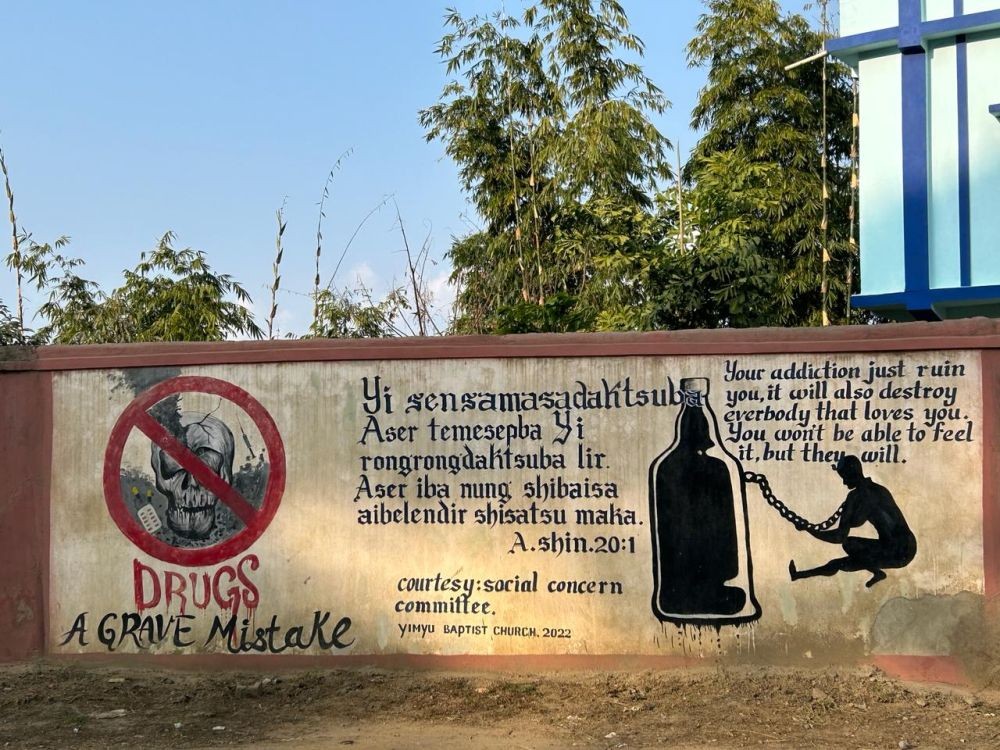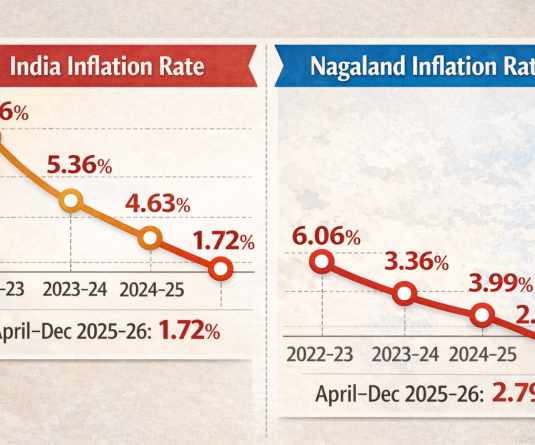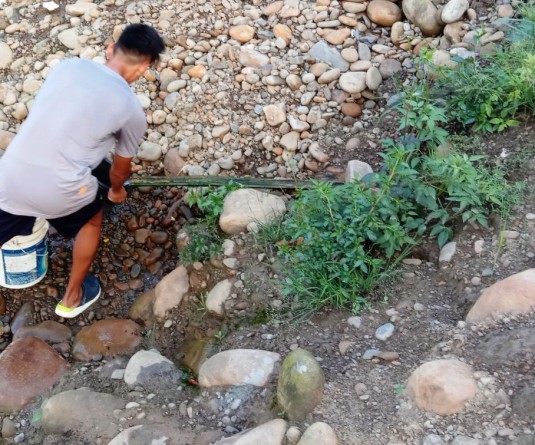A mural painted by the Social Concern Committee of Yimyu Baptist Church, Mokokchung at Yimyu ward, depicting the ills of drug and alcohol abuse. (Morung Photo)

Dedicated intervention & rehab progs need of the hour, says people working in the field
Limasenla Jamir
Mokokchung | February 4
Nagaland is among the states in India with a high percentage of population affected by substance abuse. As per the Ministry of Social Justice and Empowerment’s report on the ‘Magnitude of Substance Use in India 2019,’ in Nagaland, 4.7 percent and 6.5 percent of the surveyed population were users of cannabis and opioids, respectively.
While district-wise percentile data was unavailable, in the district of Mokokchung, the police recorded 32 cases under the Narcotic Drugs and Psychotropic Substances (NDPS) Act and 30 under the Nagaland Liquor Total Prohibition (NLTP) Act in 2023 pointing to an increase in substance abuse cases.
According to Counsellor Chungpongchila, at least five to six new clients are registered every month at the Oral Substitution Therapy Centre at the Imkongliba Memorial District Hospital. In the initial years, when she first joined as a counsellor at the OST Centre ten years ago, there was hardly any registration. However, she noted that the numbers have been presenting an increasing trend in the past 3-4 years.
She said, “The introduction of new drugs in the market like ‘Sunflower’ may be a probable cause for the increase in the number. Initially my clients were mostly between 25-30 years but in the recent years, the age group is between 20-25 years.”
According to Moatoshi Jamir, Counsellor at the Mokokchung Town Baptist Church (MTBA), alcoholism and drug use are inextricably linked. "Today's trend is that alcohol and drug addiction are mushrooming specially among the youngsters," he said. Moatoshi has approximately 30 people enrolled in the church's Alcoholic Anonymous programme.
Dr. Kilang, Nodal Officer, OST Centre, made similar observation. He noted a trend where at least one member of the family is into substance abuse with the affected not limited to the young alone.
"What we need to realise is that substance abuse is not a habit, but rather a chronic disease like diabetes and hypertension. They require daily counselling as well as regular medication. It is a long-term sickness and to address the issue of addiction, we require a full-fledged and adequately equipped rehabilitation centre,” said Dr Kilang.
Why the Need for Rehab Centres?
There is not a single full-fledged and fully-equipped rehabilitation centre in Mokokchung. Most of the detox camps or AA programs are undertaken by the church and a few NGOs. There are prayer centres that act as rehabilitation centres but cannot provide medical assistance and advice.
Due to the lack of rehabilitation centres in the district, many turn to the church for recovery. Most churches under ABAM have AA groups, who organize detox camps and run guidance programmes. Moatoshi Jamir commented that some AA groups enroll more than 60 individuals, which he held is not advisable.
“We deal only with outpatients and when the client load increases, it becomes difficult to cope with only one counsellor at the centre,” said Chungpongchila. “Apart from the medication and the counselling that is provided at the centre, clients need extra assistance, care and support, which can be provided in a proper rehabilitation centre,” added the counsellor. There are a lot of cases where recovering clients relapse in between treatment or after treatment due to the absence of detox camps and rehabilitation centres, Chungpongchila further said.
Merenchila, Counsellor, Childline Mokokchung, also stated that one or two rapport building sessions are not enough to assist clients to cultivate “self-compassion” and find purpose in life. “They need professional care and support under a rehabilitation centre, where individual, group as well as family therapy sessions are provided with proper follow up programs. With trained professional staff, therapies for treatment, recreational activities and engagement, they will be able to cope productively during difficult or painful moments,” she added.
Merenchila also deals with clients who are between the ages of 22-25 years.
A member of the MTBA AA group mentioned that the process of recovery can be challenging without proper treatment or facilities in the town, as access to support and resources plays a crucial role. The member further emphasised the need for rehabilitation centers as they provide structured programs, professional guidance, and a supportive environment crucial for individuals struggling with substance abuse.
Nungsangmanen, member of AA group and Youth Mentor summed up that the lack of awareness and understanding on the disease or concept of addiction/alcoholism, stigmatization and the easy availability of alcohol and drugs, along with improper treatment facilities, stand in the way to recovery.
“There is an urgent need for a rehabilitation centre in Mokokchung town because there are many active cases of alcohol and drugs abuse and there is also a spike in the usage of drugs, especially among the youths,” said Manen. He also added that substance abuse will continue to exist, and the only possible and practical solution to this menace is the establishment of institutions which will be able to effectively deal with the issue.
“People should accept the realities of addiction/alcoholism and come forward seeking for help. Institutions such as the church, schools and civil bodies should promote awareness programmes regarding addiction/alcoholism and create platforms for physical, psychological and spiritual recovery for those individuals and families suffering from the disease of addiction,” he further commented.
“If timely intervention is not taken, I am afraid we might witness a situation similar to that of the nineties which will affect our young generation and it might be very difficult to bring the situation to normalcy,” lamented Aienla, a concerned parent.
She said that it is high time the society and the government start diverting its attention to the problem of substance abuse in the state.





